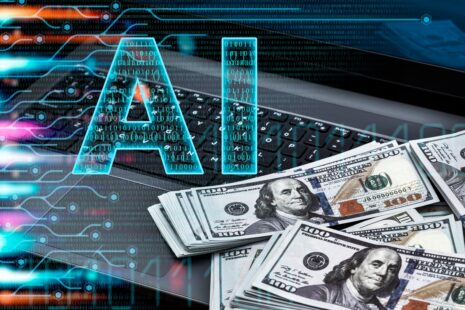Artificial intelligence has sparked many debates over its ethical implications, with some uses generating more controversy than others. The most contentious AI applications often raise concerns about privacy, security, fairness, and potential misuse.
Facial Recognition
- Privacy Violations
Using AI-powered facial recognition by governments, law enforcement, and private companies has raised serious privacy concerns. AI systems can track individuals without their consent, leading to potential surveillance states where people are monitored in real-time.- For example, China’s extensive use of facial recognition technology in public spaces to monitor citizens has sparked global debates about human rights and freedom. Critics argue it undermines privacy and enables mass surveillance, while proponents claim it is necessary for security and law enforcement.
- Bias and Inaccuracy
Studies have shown that facial recognition software can have higher error rates for people of color, particularly Black and Hispanic individuals. This can lead to discriminatory practices, such as wrongful arrests based on misidentification.
Deepfakes and Misinformation
- Manipulating Media
Deepfake technology uses AI to create highly realistic fake videos or audio recordings of people saying or doing things they never actually did. This can spread false information, defame individuals, or manipulate public opinion.- For example, in politics, deepfake videos have been used to create fake speeches or alter politicians’ appearances, leading to widespread disinformation and public distrust.
- Security Risks
Deepfakes are also a growing threat to security, as they can be used to impersonate individuals and deceive people into revealing confidential information or committing fraud.
Autonomous Weapons and Military AI
- AI in Warfare
The development of AI-driven autonomous weapons, capable of selecting and engaging targets without human intervention, has raised significant concerns. These technologies could revolutionize warfare but also lead to uncontrollable escalation, loss of accountability, and the potential for mass casualties.- For example, The use of autonomous drones in military operations has already sparked debates over the ethical implications of allowing machines to decide life-and-death outcomes.
- Ethical Dilemmas
There’s fear that the proliferation of AI-controlled weapons could lead to conflicts with little human oversight, making decisions based solely on algorithms without moral or ethical judgment.
AI in Hiring and Recruitment
- Bias in Hiring Decisions
AI tools used in recruitment and hiring processes have come under scrutiny for reinforcing gender, racial, and socioeconomic biases. Many AI systems are trained on historical hiring data, which may perpetuate existing inequalities in the workforce.- For example, Amazon faced criticism for using an AI hiring tool that showed a preference for male candidates, simply because it was trained on resumes submitted over the years, where men were historically favored for tech positions.
- Lack of Transparency
Many companies that use AI in hiring processes do so with little transparency, making it difficult for applicants to understand how decisions are made. This lack of visibility raises concerns about fairness and accountability.
Social Manipulation through AI Algorithms
- Influencing Opinions and Behavior
AI-powered recommendation systems, particularly on social media platforms, have been criticized for manipulating user behavior and spreading echo chambers. These algorithms promote content that maximizes user engagement, often by amplifying extreme or polarizing viewpoints.- For example, Facebook and YouTube have faced backlash for their role in spreading misinformation and radicalizing users by recommending harmful or divisive content.
- Loss of Autonomy
Critics argue that AI-driven content recommendations undermine individual autonomy, steering people toward content that reinforces their existing beliefs instead of promoting critical thinking or diverse viewpoints.
AI in Healthcare and Bioethics
- Data Privacy Concerns
As AI becomes more integrated into healthcare, concerns about the use of personal medical data for training AI models have arisen. The lack of transparency and consent in how this data is used can lead to violations of patient privacy. - Medical Decision-Making
The use of AI in diagnosing conditions or recommending treatments also raises ethical questions. Who is responsible if an AI misdiagnoses a patient? Could reliance on AI diminish the human element of care, where empathy and judgment are needed most?
While AI offers enormous potential for positive impact, its controversial applications highlight significant ethical challenges. These range from privacy violations and misinformation to the potential for biased decision-making and the weaponization of AI. As AI technology evolves, it will be crucial for governments, tech companies, and ethical bodies to create frameworks to ensure AI is developed and used responsibly.




